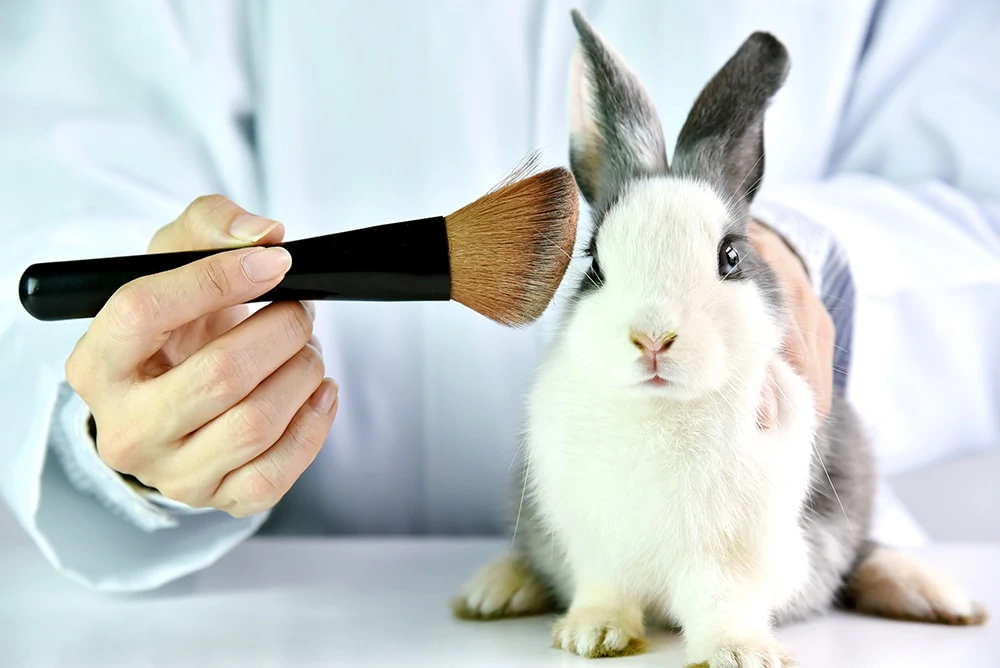The UK’s Department for International Trade (DIT) hosted the 1st China Cosmetics Safety International Forum against the backdrop of the China International Imports Expo (CIIE) in November, writes Demi Ping
The Forum is part of continued efforts by the UK Government to remove the mandatory requirement for animal testing on imported non-special use beauty and cosmetics products into China. Representatives from British, Chinese and European cosmetics industry heavyweights attended, including The Body Shop, Estée Lauder, Jala, Jahwa, L’Oreal, Lush, Proya, Unilever & Walgreens Boots Alliance.
The event focused on three key areas: A risk-based approach to production quality assurance; a Chinese system of notification involving safety assessment; and a Chinese system of in-market control / cosmeto-vigilance. The discussions are particularly pertinent given that China’s Cosmetics Supervision and Administration Rules (CSAR) are currently being revised by China’s Ministry of Justice.
Officials from China’s National Medical Products Administration (NMPA) – previously known as the China Food & Drug Administration (CFDA) – first visited the UK in December 2014 to observe the UK’s approach to safety assessment with particular regard to alternatives to animal testing, safety assessment and in-market control.
The forum marked a positive milestone to ensure cosmetics safety in China whilst removing the current mandatory requirement for animal testing
Officials met UK Ministers as well as visiting key UK companies including Unilever and Walgreen Boots Alliance. The visit triggered a Memorandum of Understanding between the UK Government and the CFDA under which both parties agreed to collaborate on training courses for Chinese regulators in which UK and European companies shared their experience of safety assessment. Further visits, supported by a number of UK companies, have taken place since then, including a visit last year by the CFDA to the European Centre for the Validation of Alternative Methods in Italy.
“The UK’s cosmetics sector is one of the fastest-growing segments of the UK economy, driving innovation globally. But at the moment, Chinese consumers cannot access many of the UK’s best beauty brands due to the requirement for animal testing,” Dame Barbara Woodward, Britain’s Ambassador to China said. “Today’s Forum represents an important milestone in our working relationship with the NMPA over the last four years. We look forward to continuing to work with the NMPA on safety assessment during the coming months as CSAR is implemented.”
Deputy Commissioner of the NMPA Xu Jinghe added, “The newly established National Medical Products Administration attaches great importance to the supervision and management of cosmetics, setting up the Cosmetics Supervision and Management Department, and actively promoting the revision of the Cosmetics Supervision and Administration Rules. China hopes to continue to strengthen international cooperation in the field of cosmetics regulation.”
During the forum Dr Manfred Aben, Vice President of Unilever Global R&D Centre (Shanghai), introduced Unilever’s approach to risk assessment, which does not require animal testing. He also described their efforts to develop next generation non-animal testing methods.
Dr Liu Yuliang, Executive President of Jala, reviewed the efforts of the Chinese cosmetics industry since 1992 to develop safety assessment and alternative testing methods. He called for wider collaboration across the industry both in China and internationally.
The First China Cosmetics Safety International Forum marked a positive milestone in the continued work by the UK government to remove the mandatory requirement for animal testing on non-special use cosmetics imported into China, whilst still maintaining their safety. Closer cooperation between the UK and Chinese governments will be particularly important over the coming months, with the expected publication of a new CSAR early next year.
For more information on the cosmetic sector contact Demi Ping in Beijing at Demi.Ping@cbbc.org.cn


